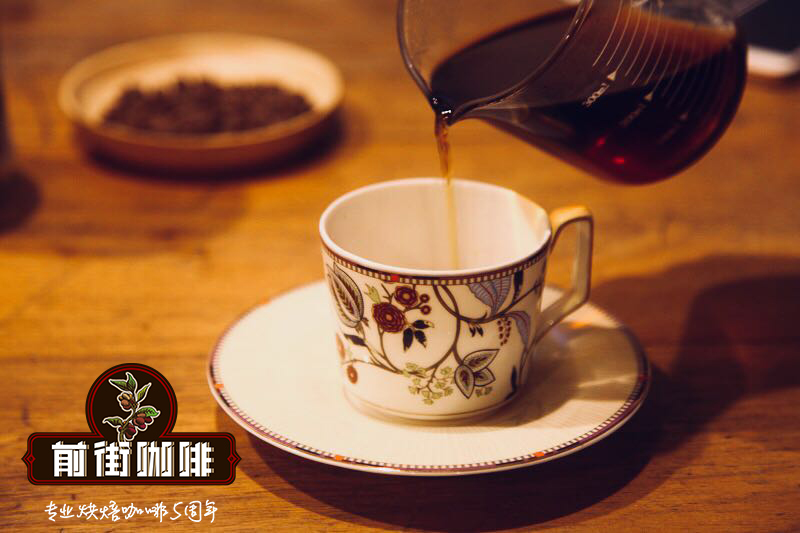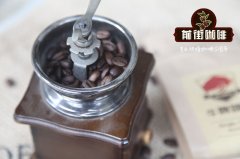Santa Cruz, Bolivia | what is the flavor of batch 1 of Kaddura species in Faye Butterfly Manor?

Professional coffee knowledge exchange more coffee bean information please follow the coffee workshop (Wechat official account cafe_style)
Santa Cruz, Bolivia | what is the flavor of batch 1 of Kaddura species in Faye Butterfly Manor?
Bolivia is one of the five most diverse countries in the world. It is a landlocked country surrounded by five countries and deeply affected by it. It has a population of more than 1000. The indigenous Indians, who account for about 60% of the total population, are divided into 36 ethnic groups. Mixed Indo-European (Mestizo) accounts for 26%, in addition to 100 European and other ethnic groups. There are Illmani peaks up to 6462 meters above sea level, Lake Titicaca, the highest and navigable alpine lake in the world, and tropical rain forests! Such a variety of terrain can be said to be a paradise for fine coffee micro-batches.
However, the output of Bolivian coffee is declining year by year, from 1997 to 2014, the export volume dropped to only 1x4, according to Roast Magazine, its coffee production ranked 38th and even ranked 35th behind the United States. Fine micro-batch Bolivian coffee can be said to be very precious and hard to find. This is due to the backward economic development and infrastructure of Bolivia, which is still the poorest country in South America. In addition, due to the unique and changeable terrain, Bolivia has become a key factor in coffee processing, transportation and quality killer because of poor infrastructure.
Our partner in Bolivia is Agricafe founded by Pedro Rodriguez and his son Pedro Pablo and daughter Daniela. Agricafe can be said to be an important driving force in reviving Bolivia's boutique coffee industry, and now it is almost an important pillar of Bolivia's boutique coffee industry. Several well-known roasters in Europe and the United States, such as Intelligentsia, Has Bean, Stumptown, Drop Coffee, 49th Parellel, Maruyama … It is almost always possible to buy Agricafe beans. Pedro has created several important private estates in the Karanabi producing area, such as Finca Don Carlos and Finca Alastias.
What is even more exciting is that Finca El Fuerte Manor has also been created in the high-altitude area of Saint Cruz, the eastern producing area of Bolivia, which has been harvested this year.
In addition to his own estate, Pedro started the El Sol de Manana project with the dream of reviving Bolivian boutique coffee and taking care of the lives of coffee farmers. The project put a lot of effort into mentoring member small farmers, providing technical support for various important technologies such as breeding, pruning, fertilization, and harvesting, and purchasing cherries harvested by member small farmers at higher prices, and using Agricafe's own processing plant for post-processing, so that farmers' income and quality can enter a good cycle of sustainable management. Bolivia is one of the five most diverse countries in the world. It is a landlocked country surrounded by five countries and deeply affected by it. It has a population of more than 1000. The indigenous Indians, who account for about 60% of the total population, are divided into 36 ethnic groups. Mixed Indo-European (Mestizo) accounts for 26%, in addition to 100 European and other ethnic groups. There are Illmani peaks up to 6462 meters above sea level, Lake Titicaca, the highest and navigable alpine lake in the world, and tropical rain forests!
Such a variety of terrain can be said to be a paradise for fine coffee micro-batches. However, the output of Bolivian coffee is declining year by year, from 1997 to 2014, the export volume dropped to only 1x4, according to Roast Magazine, its coffee production ranked 38th and even ranked 35th behind the United States. Fine micro-batch Bolivian coffee can be said to be very precious and hard to find. This is due to the backward economic development and infrastructure of Bolivia, which is still the poorest country in South America. In addition, due to the unique and changeable terrain, Bolivia has become a key factor in coffee processing, transportation and quality killer because of poor infrastructure.
Altitude 1600-1750m
Flavor: the aroma of lemon peel is floral, the aroma of grape juice is scattered in the front, the middle is like a cup of sour and sweet mulberry juice, the finish is full of flowers and peaches, round and sweet and sour.
Qianjie recommended cooking:
Filter cup: Hario V60
Water temperature: 90 degrees
Degree of grinding: small Fuji 3.5
Cooking methods: the ratio of water to powder is 1:15, 15g powder, the first injection of 25g water, 25 s steaming, the second injection to 120g water cut off, waiting for the powder bed water to half and then water injection, slow water injection until 225g water, extraction time about 2:00
Analysis: using three-stage brewing to clarify the flavor of the front, middle and back of the coffee. Because V60 has many ribs and the drainage speed is fast, it can prolong the extraction time when the water is cut off.
Important Notice :
前街咖啡 FrontStreet Coffee has moved to new addredd:
FrontStreet Coffee Address: 315,Donghua East Road,GuangZhou
Tel:020 38364473
- Prev

Tomorrow Sun Project | Karanabi, Bolivia | Pearl beans of Don Carlos Manor in Yonggas
Professional coffee knowledge exchange more coffee bean information please follow the coffee workshop (Wechat official account cafe_style) Bolivia Karanabi | Yonggas Don Carlos Manor Pearl Bean flavor? Our partner in Bolivia is Agricafe founded by Pedro Rodriguez and his son Pedro Pablo and daughter Daniela. Agricafe can
- Next

Costa Rica Western Valley Yellow Honey Coffee Brewing Share_Western Valley Coffee Bean Flavor Properties
Professional coffee knowledge exchange More coffee bean information Please pay attention to coffee workshop (Weixin Official Accounts cafe_style) Name: Costa Rica West Valley Microlot Grade: SHB Manor: Piedades Alajuela/El Carmen Microprocessing Plant Coffee Variety: Caturra, Catuai Planting Elevation
Related
- Detailed explanation of Jadeite planting Land in Panamanian Jadeite Manor introduction to the grading system of Jadeite competitive bidding, Red bid, Green bid and Rose Summer
- Story of Coffee planting in Brenka region of Costa Rica Stonehenge Manor anaerobic heavy honey treatment of flavor mouth
- What's on the barrel of Blue Mountain Coffee beans?
- Can American coffee also pull flowers? How to use hot American style to pull out a good-looking pattern?
- Can you make a cold extract with coffee beans? What is the right proportion for cold-extracted coffee formula?
- Indonesian PWN Gold Mandrine Coffee Origin Features Flavor How to Chong? Mandolin coffee is American.
- A brief introduction to the flavor characteristics of Brazilian yellow bourbon coffee beans
- What is the effect of different water quality on the flavor of cold-extracted coffee? What kind of water is best for brewing coffee?
- Why do you think of Rose Summer whenever you mention Panamanian coffee?
- Introduction to the characteristics of authentic blue mountain coffee bean producing areas? What is the CIB Coffee Authority in Jamaica?

